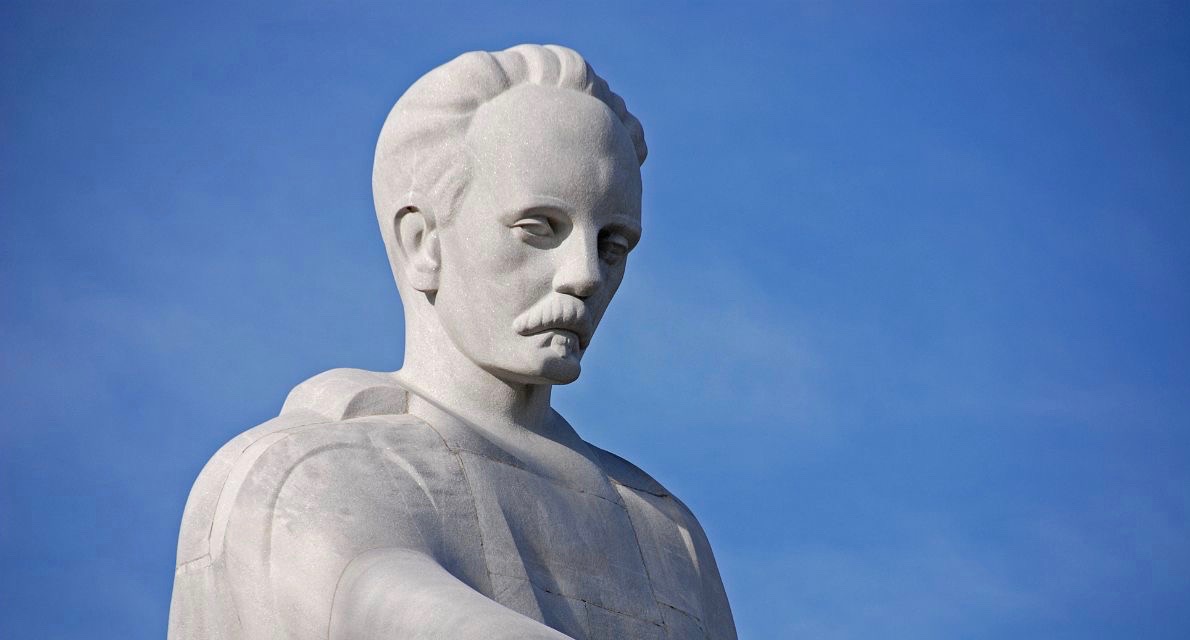
What Jose Martí teaches us about Trump-era imperialism
Thousands of Cubans participated in the March of the Torches on Saturday (Jan. 27), an annual procession that pays homage to national hero Jose Martí on his birthday. Martí was a poet, essayist, novelist, and later in his life, a soldier.
This year’s march, commemorating the 164th anniversary of his birth, also paid tribute to Cuban revolutionary leader Fidel Castro. It was the first of its kind held since Fidel’s death last November.
Although Marti and Castro lived decades apart, both leaders defended their homeland from the same system they fought against until their deaths: imperialism.
Fidel is widely known for standing up to United States imperialism. But Martí, too, stood up to imperialists who wanted to extend their country’s economic, political, and military influence over the Caribbean island.
 While participating in Cuba’s independence struggle against Spain, Martí wrote prolifically about the dangers of U.S. encroachment in the region.
While participating in Cuba’s independence struggle against Spain, Martí wrote prolifically about the dangers of U.S. encroachment in the region.
Here are three examples:
“I have lived in the monster and I know its insides; and my sling is the sling of David.”
The first excerpt was written in a letter to Manuel Mercado in 1895 reflecting on his time living in the United States in the years leading up to the Spanish-American War. Here, he compares Cuba’s burgeoning struggle against U.S. imperialism to the fabled battle between David and Goliath.
“When a nation is invited to join in a union with another, the ignorant, bedazzled statesman might rush into it, young people enamored of beautiful ideas and lacking good sense might celebrate it, and venal or demented politicians might welcome it as a mercy and glorify it with servile words, but he who feels in his heart the anguish of the fatherland, he who watches and foresees, must investigate and must say what elements constitute the character of the nation that invites and the nation that is invited, and whether they are predisposed toward a common labor by common antecedents and habits, and whether or not it is probable that the fearsome elements of the inviting nation will, in the union it aspires to, be developed to the endangerment of the invited one.”
The second one was delivered in a speech to the Monetary Conference of the American Republics in 1891. Here, he warns Latin American leaders about the dangers of entering into financial and political agreements with the United States as Spain’s influence in the region diminishes.
“It was imperative to make common cause with the oppressed, in order to secure a new system opposed to the ambitions and governing habits of the oppressors.”
The last excerpt was written in 1881 in his most notable book, “Our America.” Here, he reflects on lessons learned in the struggle against Spanish colonialism and how Cubans can avoid falling into the hands of another imperialist power, like the United States.
Although Martí’s anti-imperialist writings were written over a century ago, they still remain relevant today, especially as U.S. President Donald Trump’s administration threatens Cuba with imperialist aggression.
Last March, Trump told supporters at a Miami rally that he plans to reverse Obama’s foreign policy reforms on Cuba “unless the Castro regime meets our demands.”
Despite Trump’s imperialist threats, Martí’s words continue to inspire new generations of Latin Americans opposed to hegemony in the region.
They teach us that our countries can stand up to powerful enemies like the U.S., that we should be wary of signing agreements that only benefit imperialist countries, and that the most oppressed should unite to abolish oppressive systems like imperialism.
(From Telesur)


